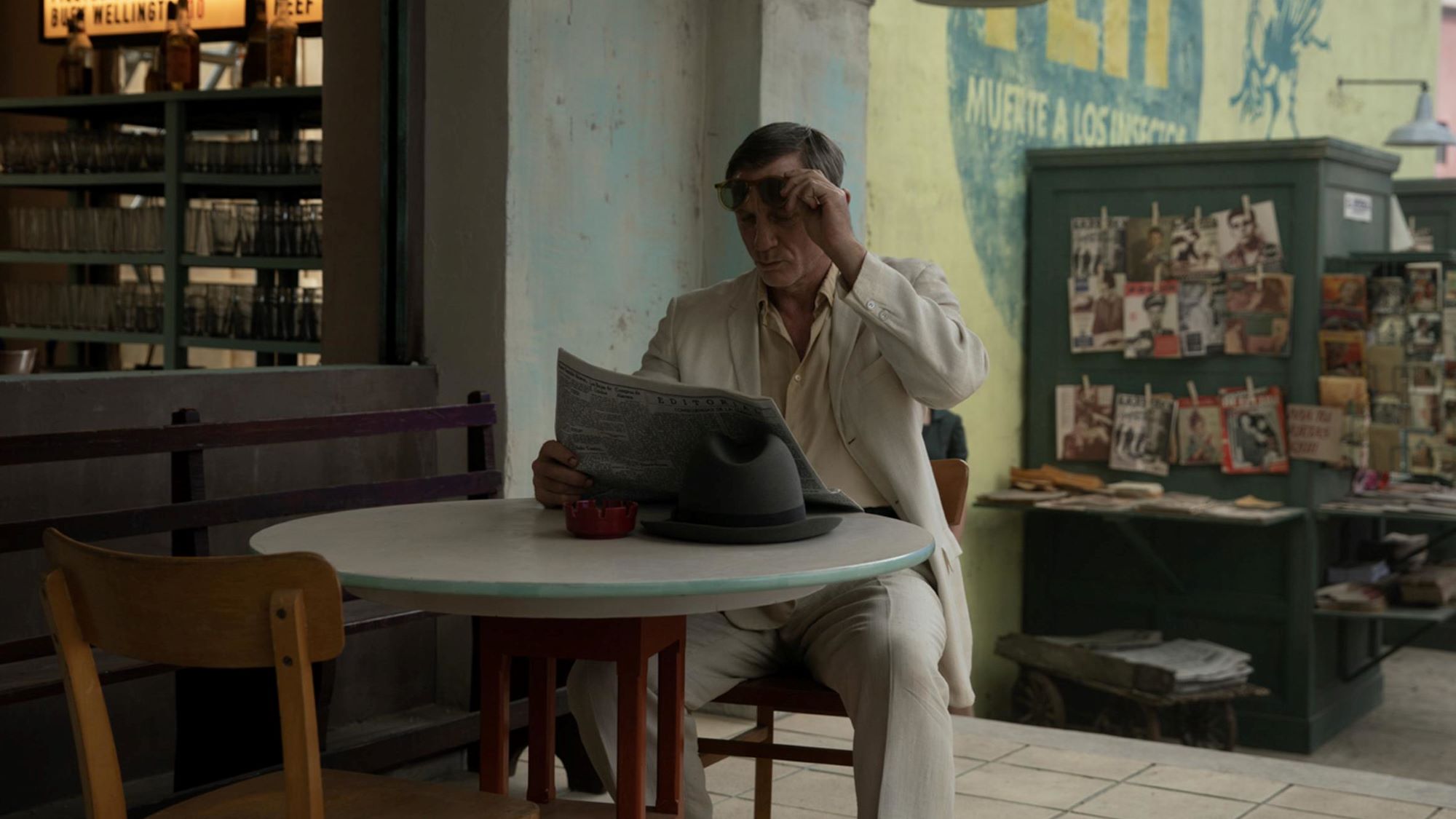
Daniel Craig may have said a definitive goodbye to Ian Fleming's iconic secret agent, but the character he plays in his latest film turns out to have quite a few interests in common with James Bond including exotic foreign travel, hard liquor, guns and casual sex. That said, Craig's new role will be quite an eye-opener for fans of his 007.
William Lee is a tequila-swigging, heroin-addicted, gay American expatriate in dusty, wind-blown, early-1950s Mexico City. He wears a white linen suit and a fedora, sports a handgun at his belt, and spends his days and nights hanging out in bars and clubs with fellow gay American expats, constantly on the prowl for his latest pick-up. When, however, he encounters clean-cut ex-serviceman Eugene (Drew Starkey), the young man inspires in Lee a desire for a deeper intimacy and connection.
Italian director Luca Guadagnino has form when it comes to tales of smoldering passion, most notably in his sensual coming-of-age story Call Me By Your Name, but whereas his previous films have often been set in privileged and rarefied worlds (moneyed Italian aristocracy in I Am Love; rock aristocracy in A Bigger Splash; tennis aristocracy in Challengers), his new film takes place in altogether seamier, low-rent surroundings. Call Me By Your Name oozed dreamy languor. Queer reeks of humid desperation.
Queer is an adaptation of an early, semi-autobiographical novel by cult writer William S Burroughs, best known as the author of "Naked Lunch" — and as the man who accidentally shot his second wife, Joan Vollmer, in a William Tell act that went wrong. As it happens, Queer was actually written in Mexico City while Burroughs was awaiting trial for her death.
Guadagnino's film does make a fleeting nod to the William Tell incident (although it does not feature any character remotely resembling Vollmer), but the film's narrative drive is provided by Lee's infatuation with Eugene, the pursuit of this object of desire given added spice by his uncertainty over whether or not Eugene shares what he calls his proclivities.
Lee has another quest, another obsession. He has heard of a South American plant called yagé from which the psychoactive brew Ayahuasca can be made. Both the Russians and the CIA are reportedly experimenting with the drug's potential for mind control, or so he's read in a magazine (Lee’s repeated references to this are a running gag in the film). Lee's interest is in the drug's supposedly telepathic qualities. He is desperate to get into his beloved's head.
So Lee drags Eugene off to South America on a search that sees the pair hacking their way through the Ecuadorian jungle towards an encounter with a pipe-smoking, gun-toting American botanist, incongruously played by Lesley Manville. She knows all there is to know about yagé. In a film full of climaxes, the hallucinogenic trip Lee and Eugene subsequently experience is the most important one.
Whether this scene and the ones leading up to it, will give the viewer a high is another matter. Here and elsewhere, Guadagnino employs every trick in his arsenal, aiming for a surreal intensity in drug and dream sequences, but also in the early bar-hopping scenes taking place in a post-war Mexico City that has been recreated in the studios of Rome’s Cinecittà. The use of anachronistic rock and pop songs on the soundtrack only ramps up the sense of artificiality. When Lee encounters Eugene at a streetside cockfight, the scene is played against the urgent strains of Nirvana's "Come As You Are".
Yet for all of Guadagnino’s cinematic flashiness, the sense of drift established by the opening scenes never entirely goes away. The screenplay by Justin Kuritzkes (writer, too, of Challengers) meanders as much as Craig's dissolute barfly. Craig is terrific, by turns cocksure and vulnerable, brusque and fey, forceful and insecure. But his brilliant performance is not enough to make Queer a success.
Nor does it make Lee a sympathetic character. Indeed, there is something unsettling about his whole quest for the psychoactive yagé. Is his interest in telepathy a desire to forge a greater connection with Eugene? Or is he really looking for his own opportunity of achieving mind control? Doesn't he secretly wish to manipulate a love object whose affections he doubts? Sadly, this ambiguity doesn't make the narrative any more gripping. Frankly, long stretches of the film are boring. In the end, Queer has to count as a disappointment. A film boasting sex, drugs and rock ’n’ roll has no right being so dull.
Queer is now playing in limited movie theaters in the US; we've got all the details on how to watch Queer right now. For those in the UK, Queer premieres on December 13.







